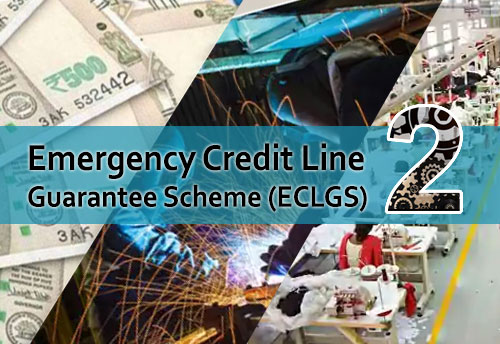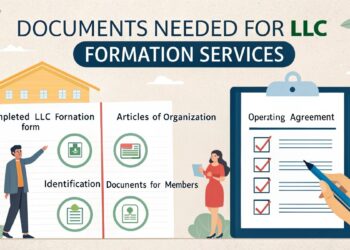Due to the pandemic-hit economy, the SME and MSME sectors faced a contraction in their business revenue. These sectors significantly suffered in continuing their business, coupled with liquidity crunch and the sinking demand. During this period of crisis, it was the initiative and consideration of the Indian Government that relieved these sectors and encouraged them to revive their business.
In May 2020, the Finance Ministry of India launched the Emergency Credit Line Guarantee Scheme, which in short, is the ECLGS to recover the Indian economy.
Importance of ECLGS for MSMEs
The ECLGS has been introduced by the GOI to restore or revive several businesses hit due to the pandemic. This scheme helps in meeting different working capital needs and operational costs of businesses. Under this scheme, borrowers can avail these loans without any collateral.
This scheme was introduced with a package of Rs.20 lakh crore known as Atmanirbhar Abhiyan. This scheme provides Rs.3 lakh crore without any collateral to reduce the financial distress induced by the pandemic.
This Government-backed programme is divided into four parts- ECLGS 1.0, ECLGS 2.0, ECLGS 3.0 and ECLGS 4.0-
- Under ECLGS 1.0, individuals will have a 1-year moratorium period and a 4-year repayment period. Under this scheme, borrowers can avail of additional credit facilities of up to 20% of their overall credit as of February 29, 2020. This scheme provides financial assistance in the form of business loans to borrowers or business entities with outstanding amounts of up to Rs.50 crore for the financial year 2019-20.
- Under ECLGS 2.0, borrowers are offered a loan amount to boost 27 financially stressed sectors with an outstanding credit above Rs.50 crore, however not exceeding Rs.500 crore as of 2020. Both ECLGS 1.0 and 2.0 is valid till March 31, 2022.
- Besides providing financial assistance to the MSME sectors to resolve their working capital requirements, the ECLGS 3.0 scheme will be offered to the enterprises associated with hospitality, leisure, travel and tourism etc.
- Under the ECLGS 4.0 scheme, eligible borrowers or business entities will get 100% assurance to cover loans up to Rs.2 crore to hospitals, clinics, and medical colleges to establish on-site oxygen generation plants with an interest rate of 7.5%.
However, to avail of the benefits offered under the ECLGS scheme, individuals need to qualify certain eligibility parameters to ensure hassle-free loan approval.
Eligibility parameters of ECLGS
The eligibility criteria of this scheme include-
- A substantial portion of the benefits of this scheme will be offered to businesses associated with registered companies, partnerships, authorised small companies and trusts.
- An applicant should be a member of GST registrar.
- The chances of getting loan approval get reduced if the business is managed by an individual alone.
- Applicants with SMA 2 or NPA will not be eligible to avail the scheme
- As of February 29, 2020, the candidate’s account must be older than 60 days
There are no such additional eligibility requirements to apply for this scheme. But apart from knowing what is MSME and how it substantially contributes to the Indian economy, individuals must consider these primary factors to avail the advantages under this scheme.
However, if individuals find the eligibility parameters stringent; they can opt for an affordable business loan from leading financial institutions, such as Bajaj Finserv and meet necessary business requirements. For that, individuals must know the documents required for a business loan and qualify the basic eligibility parameters to ensure a smooth loan application.
These NBFCs also extend exclusive pre-approved offers that streamline and expedite the loan application process. These offers are also available on a wide range of financing options, such as personal loans, business loans, credit cards etc. Therefore, individuals can check their pre-approved offers by submitting their names and contact information.
Besides knowing about the ECLGS and its benefits, borrowers should also know about the interest rates, credit limit, scheme validity and guarantee.






